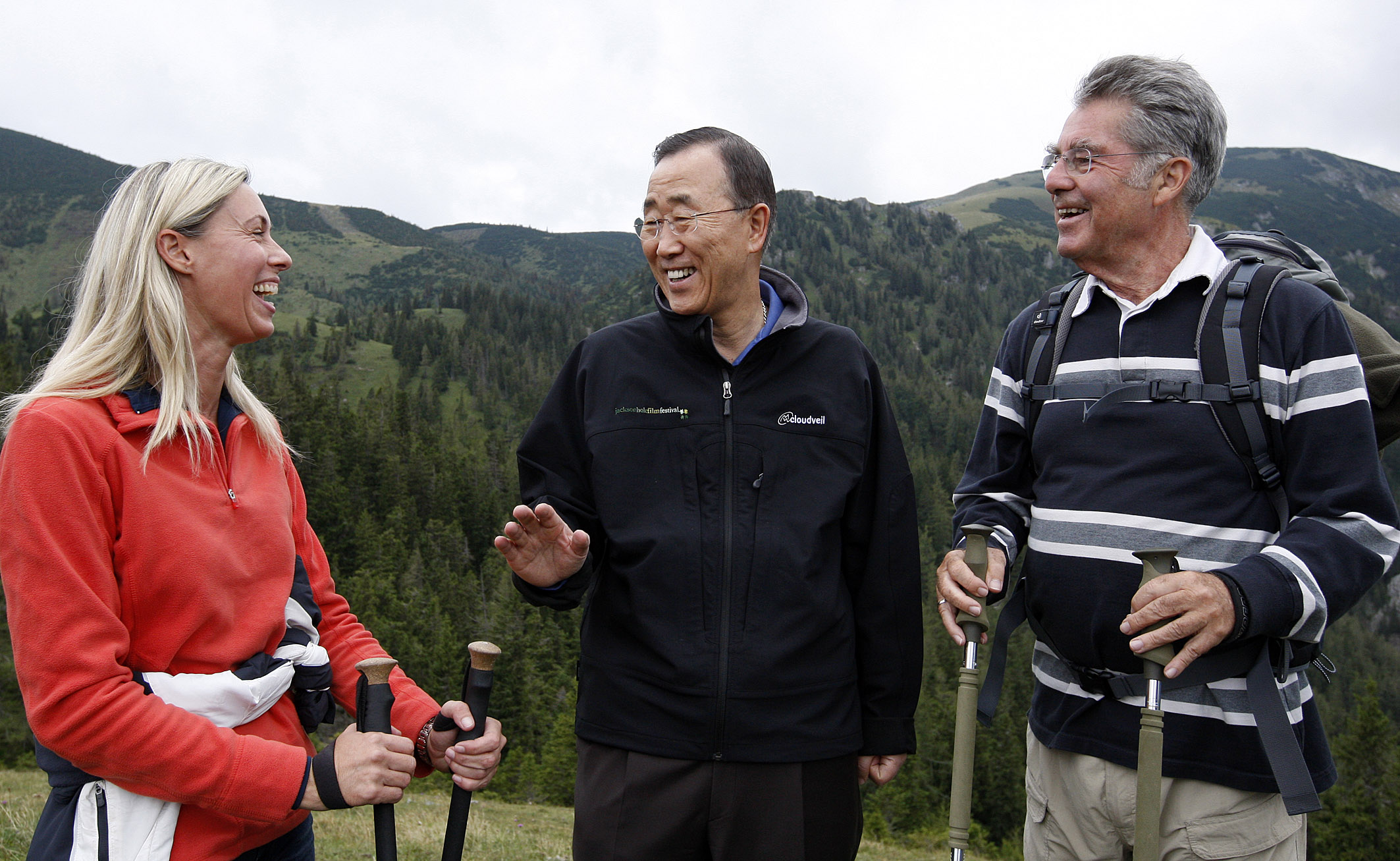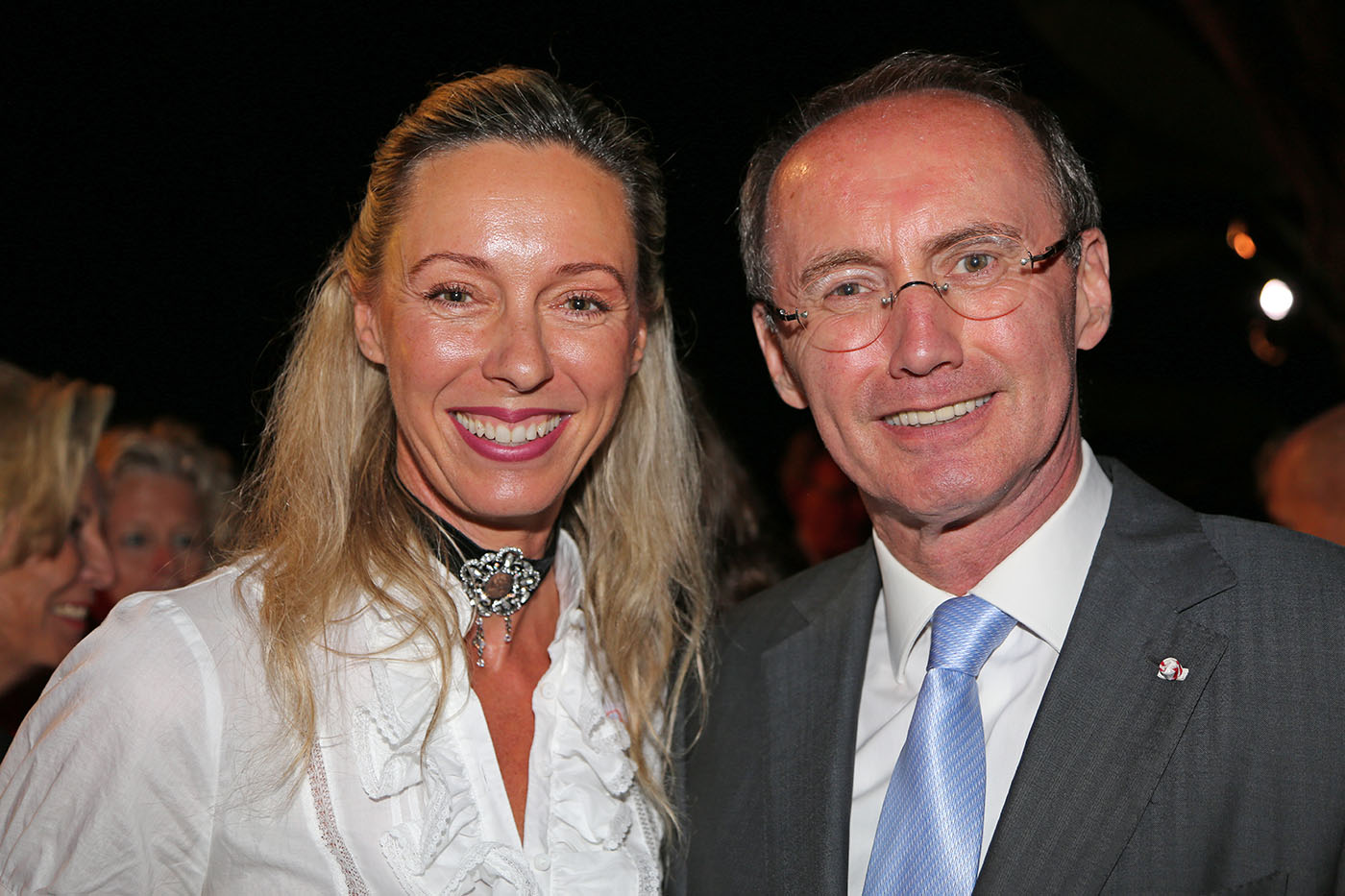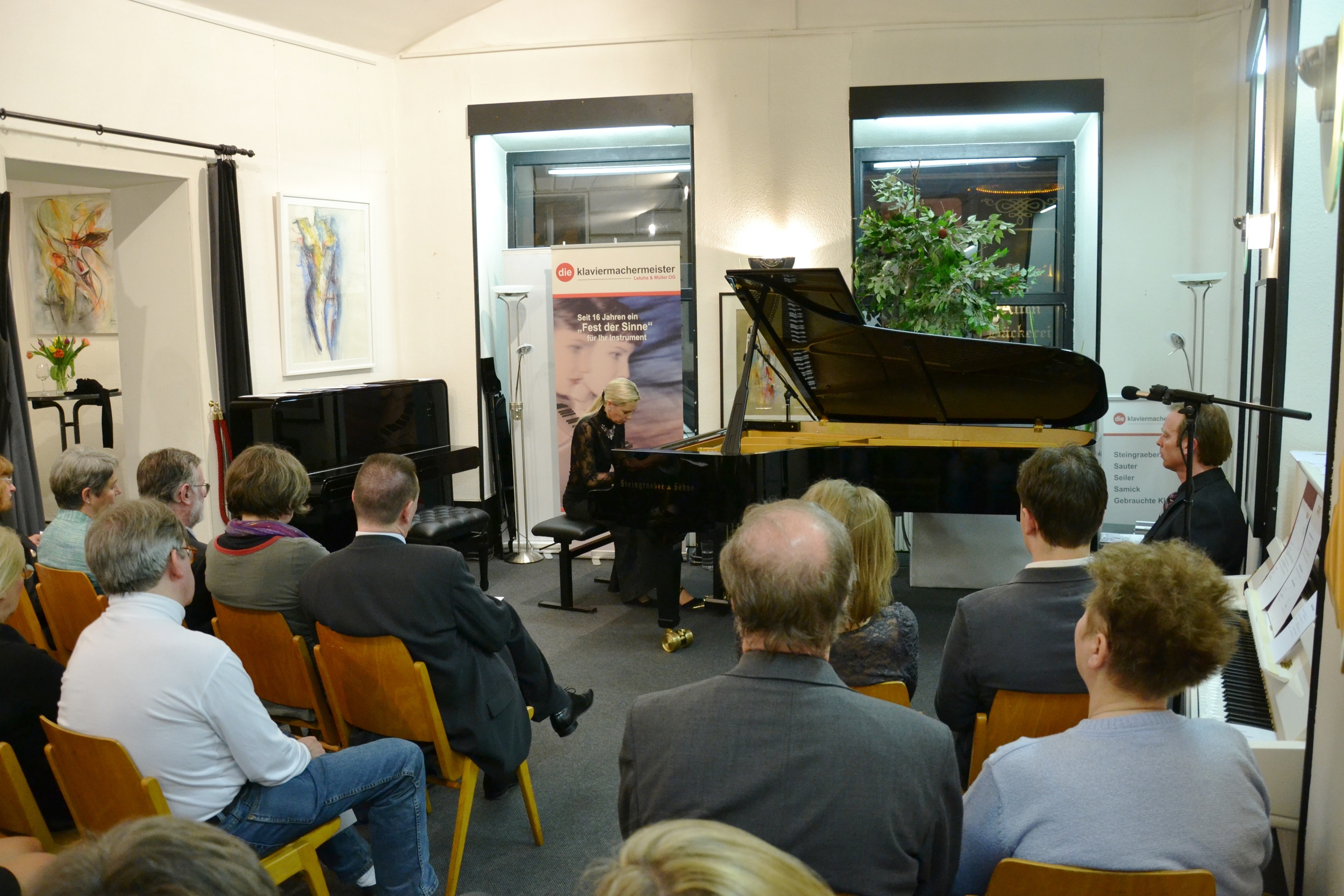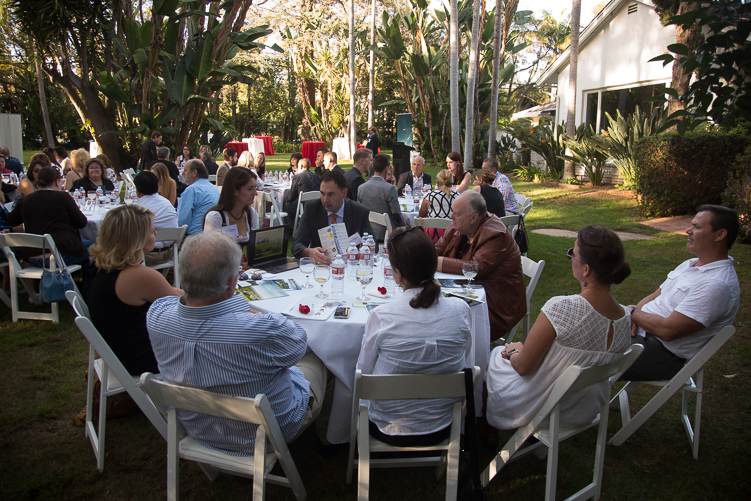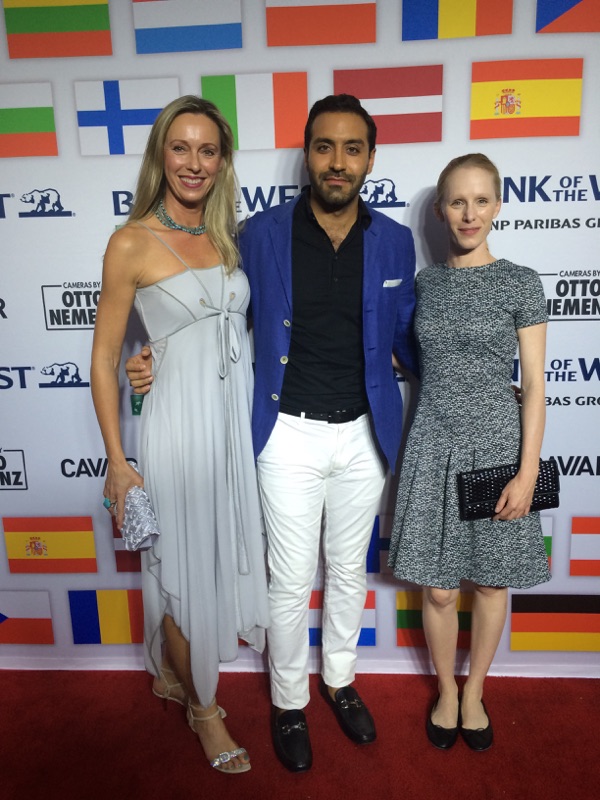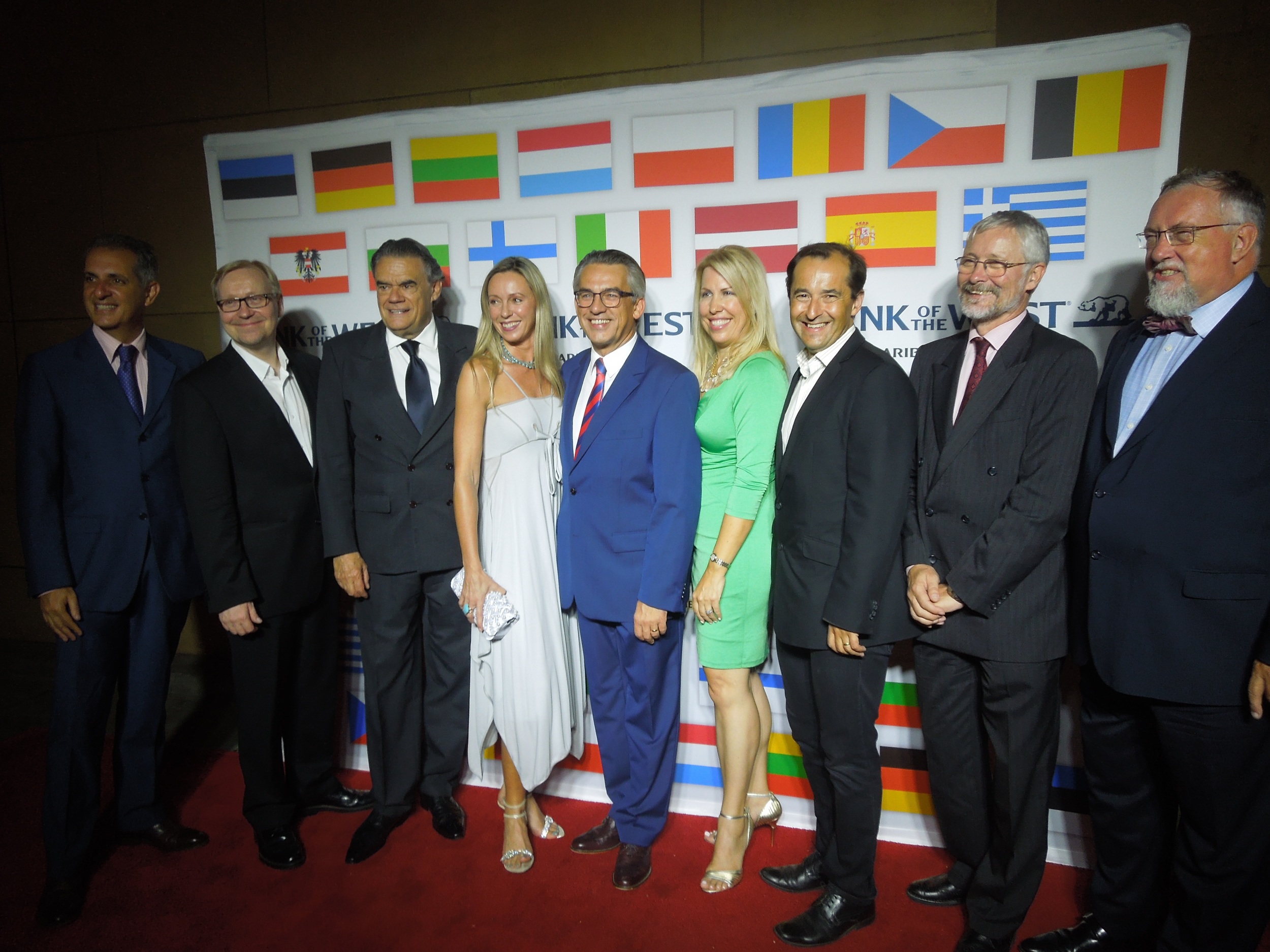Meet the Consul
Top photo: Ulrike Ritzinger (left) with Conchita Wurst and Barbara Gasser at the 2015 Golden Globe Awards
Wikimedia Public Domain
Ulrike Ritzinger, Los Angeles
Interview by Thorsten Eisingerich
Tell us a little bit about your family background and education:
I was born in Styria, close to the Slovenian border. I have three siblings who all live in Austria. When I was six years old, we moved to the Styrian capital Graz where my father worked as an eye surgeon. When I was twelve, we moved again for my fathers job to Leoben (nota: an hour North- West of Graz), and I was sad to leave my friends behind, but the excellent education I received at the Leoben high school paved the way for a successful future.
When we first met in Strasbourg almost 20 years ago, you had already tried your hand at a good number of possible careers: Which were these and do you regret not having pursued one of them?
Things often turn out differently than expected – and mostly for the better! At seventeen, my dream was to become a pianist, but in the end I went to Paris as an au-pair to perfect my French language skills. A few years later, I graduated with a bachelor in tourism management from the Tourism School Salzburg-Klessheim and worked in Hilton Hotels in Munich and Paris for some time. But my thirst for knowledge was not satisfied, so I enrolled at the Institut d’Études Européennes in Paris for a degree in political science and completed my education with post-graduate studies at the Diplomatic Academy Vienna. Internships at the Council of Europe in Strasbourg and the European Union in Brussels, as well as the persuasive words of Paul Leifer, then the director of the Diplomatic Academy Vienna, convinced me that the diplomatic service is the place I fit into best and where I wish to be. So I prepared for the entrance exam at the foreign ministry. I certainly made the right decision - although playing the piano still is a very important part of my life.
I also had the impression that diplomacy would suit you well while enticing you to apply for the Diplomatic Academy in Vienna back then… After joining the Austrian Diplomatic Service, which were your assignments in Vienna and abroad?
You definitely are co-accountable for my becoming a diplomat! After joining the foreign ministry in January 2000, I served as political desk officer for the Balkans for two years before working at the Austrian Embassy in Beijing for the initial short-term assignment of six months. Coming back to Vienna, I moved to the press and information department of the foreign ministry, and very soon to the position of deputy head of the department. From 2005 and to 2009, I served at the Austrian Embassy in Rome, from where I was called back to Vienna to become the deputy foreign policy advisor to Federal President Heinz Fischer.
Which assignment shaped you most for your present function?
I have worked with several senior colleagues who acted by way of example and served as role-models to me. The position of deputy head of the press and information department of the ministry certainly was a very valuable experience. However, working with Federal President Heinz Fischer and his team for five years was the most rewarding and interesting experience so far.
What are the challenges for an Austrian Consul General in L.A.?
The greatest challenge is time management: a thousand things to do, but only 24 hours a day! The crazy Los Angeles traffic with its long distances amplifies the challenge. The Austrian Consulate General in L.A. does not dispose of a driver, so I lose a lot of precious time in traffic jams – like most Angelinos. Taking a taxi only helps to a limited extent as one can wait for a taxi for up to one hour. Keeping the Austrian residence in good shape is another big challenge: Over the last two years, I spent days and weeks overseeing construction work and negotiating with companies. Sometimes, I felt more like a construction manager than a diplomat. The third challenge is to deliver content despite the time-consuming bureaucratic necessities - in other words, to act as a shaping force without neglecting necessary administrative work. And, last but not least, Americans have a very confined opinion about Austria. Only few Americans know that Austria also stands for high-tech, green technology, excellent Jazz and electronic music and innovative companies like Red Bull.
Have you previously had any special relations to the U.S.?
I first travelled to the United States when I was nineteen, then returned at the age of 22 for a two-month journey with the Rotary Club to South Carolina, Arkansas, South Dakota and California. At the age of 29, I came back to spend three weeks at the University of Quincy in Illinois. Finally, I accompanied Federal President Heinz Fischer to the General Assembly of the United Nations in New York every September for each of the five years I worked for him.
Photo: Ulrike Ritzinger
Telling by your reporting and social media presence, it seems that arts and culture occupy a swathe of your activity in L.A.; would you like to share the highlights so far with our readers?
Just to name a few events: Christoph Waltz got a star on the Hollywood Walk of Fame in December 2014, Austrian Eurovision Song-Contest winner Conchita Wurst made her appearance at the Golden Globes in January 2015, Austrian folk singer Andreas Gabalier rocked the World Skiing Championships in Colorado in February 2015 - and in July 2015, a delegation of 200 Austrians took part in the Special Olympics World Games in Los Angeles. One of my personal highlights certainly was the kick-off event for the next Special Olympics World Games Austria 2017 at my residence: among the 400 guests were “heavy weights” like former Governor Arnold Schwarzenegger, the President of Special Olympics Timothy Shriver and his sister Maria Shriver, the Austrian swimming star (and member of the board of the U.S. friends of the Jewish Museum Vienna) Markus Rogan, as well as numerous Olympic and World champions in various disciplines.
Beside this flurry of activities, how can you find the time for traditional consular work as the Consul General?
I am lucky to dispose of a very professional, hard-working and devoted team. Consular work requires specific expertise, social skills and mental strength. Some cases - like the fate of a young Austrian mother who died in the notorious Duck boat tour crash in September 2015 in Seattle, leaving behind a teenage son - are heartbreaking. The Consulate General in Los Angeles is responsible for a total of sixteen Western States from Alaska to New Mexico and from North Dakota to Hawaii - plus several Pacific Islands under U.S. administration like American Samoa. Clearly, the vast territory covered by the Consulate General implies a lot of travelling. Fortunately, we can count on the valuable support of nine Honorary Consuls – all of them locally well connected personalities with close ties to Austria.
What can you tell us about the Austrian community on the West Coast?
Most of the Austrians on the West Coast live in California. Within California, sixty percent of them of are based in Los Angeles, about 38 percent in San Francisco. Outside of California, Seattle in Washington State also has a considerable amount of Austrian inhabitants, while in Alaska only five Austrians are registered at my Consulate General. Besides the big cities, you can find Austrians in many skiing resorts - be it Vail, Park City or Aspen. Jewish Austrians mostly fled to Los Angeles, hoping that the film industry would provide for a decent career. Thus, you will meet descendants of great Austrians like Arthur Schnitzler, Arnold Schönberg or Erich Zeisl in Los Angeles. Today the “City of Angels” attracts Austrian artists, film-makers, designers, architects and musicians more than ever. For fellow Austrians belonging to the world of startups and research, the Bay Area seems to be most attractive, while business-giant Red Bull chose to establish the company’s U.S.- headquarters in the 18-million-metropolis Los Angeles instead. The Austrian communities in Los Angeles, Seattle, Phoenix and Honolulu are particularly active. However, young Austrians seem to be less devoted to engage in traditional Austrian clubs and associations.
And what about politics? Are Austrian politicians regular guests on the West Coast?
Three Austrian federal ministers visited California since I assumed my duties two years ago, and a fourth ministerial visit is just around the corner. Foreign Minister Sebastian Kurz was the first to pay a visit to California. He came to San Francisco accompanied by a delegation of 40 Austrian business people. Federal Minister for Agriculture and the Environment Andrä Rupprechter visited Los Angeles and Phoenix/Arizona in September 2015 together with 17 Austrian experts. And in November 2015, Austrian Federal Minister of Transport, Innovation and Technology Alois Stöger paid an official visit to Los Angeles and San Francisco, accompanied by a delegation of nineteen.
To end, which are the places in your huge consular district you have already visited and which ones will come next?
During my first two years in office, I travelled to San Francisco, Phoenix, Seattle, Honolulu, Denver and Anchorage. I shall soon travel to Salt Lake City to visit the Austrian Honorary Consulate there and I am very much looking forward to it.
Thank you very much for the interview, and best of luck for this exciting assignment together with our sincere hope that you will manage to squeeze in a little sleep, too!
